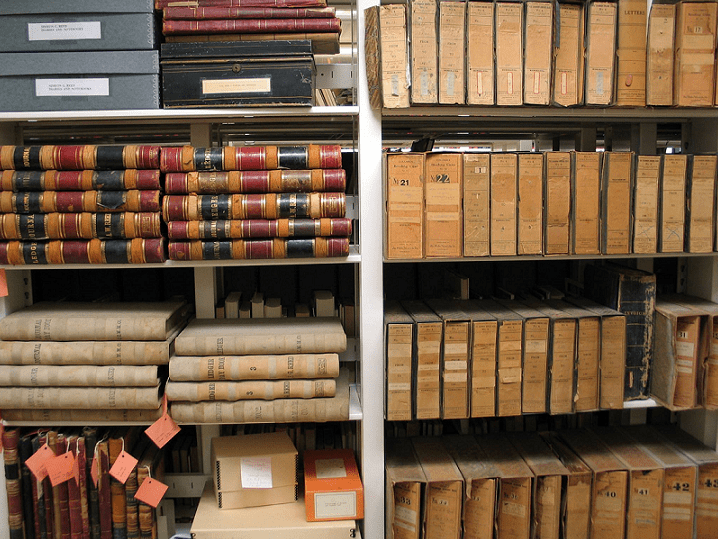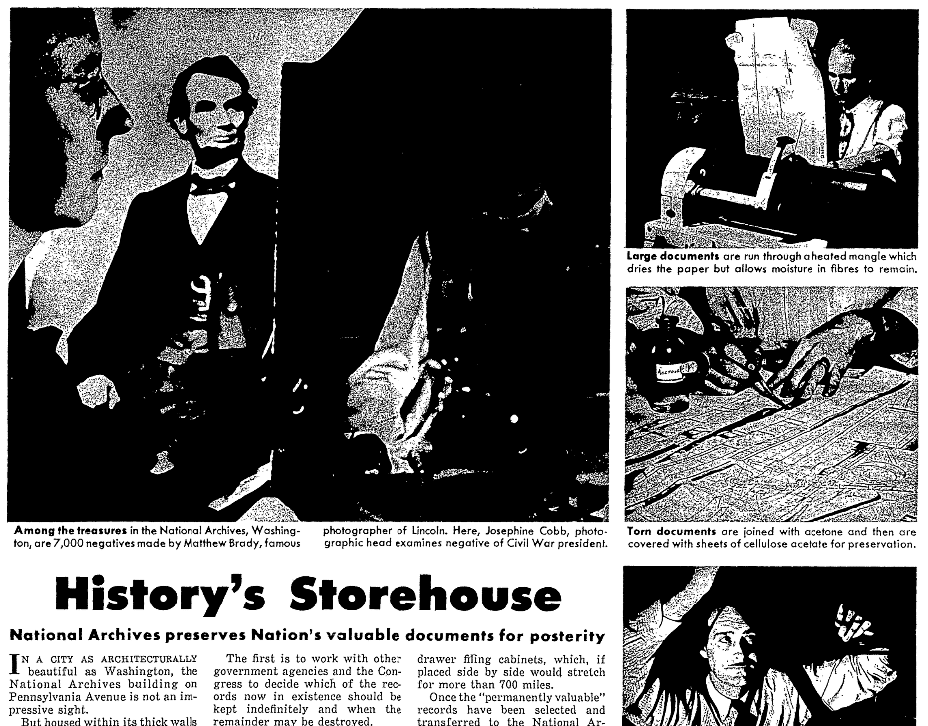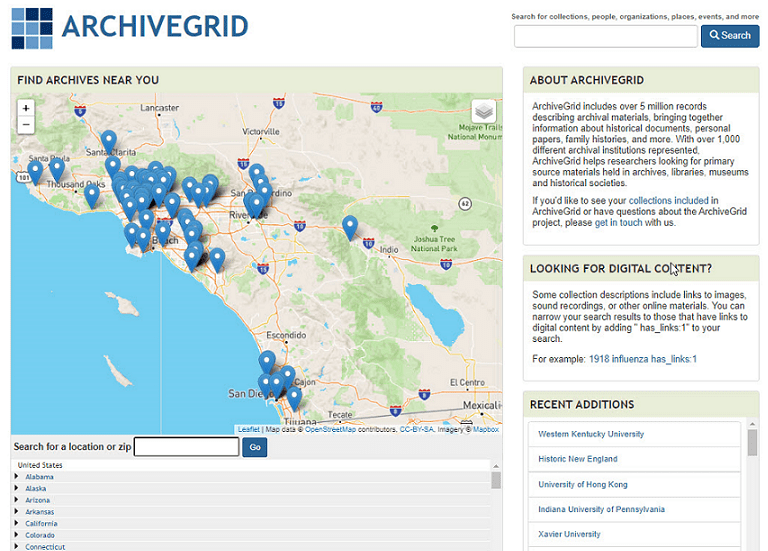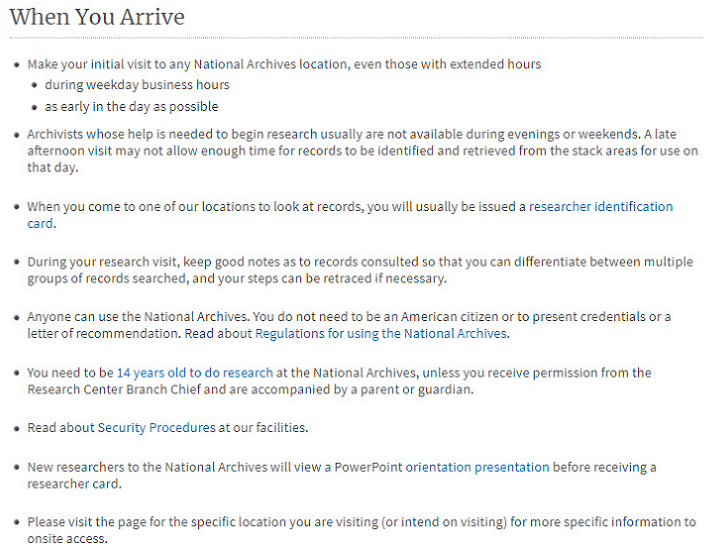Introduction: In this article, Gena Philibert-Ortega gives tips, while you’re home during quarantine, for planning your next research trip to an archive once the pandemic lessens. Gena is a genealogist and author of the book “From the Family Kitchen.”
Previously I wrote an article that gave ideas for preparing for your next research trip to the library during this unique time ( see Genealogy during Quarantine: 5 Things to Do When the Library Is Closed). In that article I discussed what to do in preparation for when libraries are once again open and we can conduct in-person family history research.
Libraries are essential to family history research – but so too are archives. Unlike libraries, archives contain records penned during our ancestors’ lifetimes and may contain information about the organizations, occupations, religion, and FAN Club of your ancestor. (1)
The Society of American Archivists points out that libraries make their collections available to the communities they serve via the ability to borrow materials to be used at home, digitized materials and databases available online, or various materials to be used in-person at the library. Library materials include published items like books and periodicals.
In contrast, archives “can hold both published and unpublished materials, and those materials can be in any format. Some examples are manuscripts, letters, photographs, moving image and sound materials, artwork, books, diaries, artifacts, and the digital equivalents of all of these things. Materials in an archive are often unique, specialized, or rare objects, meaning very few of them exist in the world, or they are the only ones of their kind.” (2) These materials are rare and do not circulate, so they can only be used at the archives.

Archives can yield important documents for the family historian, so before planning a trip you should choose a research project (an individual or family) and then identify what research questions you have about that person or family. Figuring out the question you want answered will help you determine what types of materials you need to search for and where they may be located. Once you have your project and questions written down you will want to:
- Identify the appropriate archive
- Search the catalog
- Learn the rules
- Identify other points of interest
Identify Appropriate Archives
What archives have records for your ancestral family? That’s the most important thing to identify before you ever leave home. Archives aren’t like a library where you can just browse the shelves. Knowing what they have and corresponding with an archivist is important.

First, know that there are different types of archives and each archive has a different focus. For example, the U.S. National Archives (also referred to as NARA) collects federal records. You would not go there for your ancestor’s birth certificate, but they would be the place to inquire about your ancestor’s military records.
What types of archives exist? According to the Society of American Archivists:
- College and university archives
- Corporate archives
- Government archives
- Historical societies
- Museums
- Religious archives
- Special collections (institutions containing materials from individuals, families, and organizations deemed to have significant historical value…) (3)
Consider your ancestor and where they lived, their occupation, their religion, what they were involved in (military service, for example), and any groups they belonged to. Then seek out the appropriate archive.
Search Catalogs
Most archives will have an online catalog available to search. Make sure to read any FAQs or search tips before you conduct your catalog search so that you don’t miss out on relevant hits. Materials that might be important for your research may be cataloged in a way that you don’t expect. Also, unless your ancestor was famous or they authored the collection, it’s unlikely that their name would be found in the archive’s catalog. Instead, you’ll want to search for terms such as a place (city and then county) or an organization that they belonged to.
ArchiveGrid
One online catalog to add to your search is ArchiveGrid. ArchiveGrid “includes over 5 million records describing archival materials, bringing together information about historical documents, personal papers, family histories, and more. With over 1,000 different archival institutions represented, ArchiveGrid helps researchers looking for primary source materials held in archives, libraries, museums and historical societies.”

While ArchiveGrid includes archives worldwide, it does not include all archives. So, it should not be a substitute for searching an individual archive’s catalog. One archive that is not included is the National Archives; you’ll need to search their collection from their online catalog.
Learn the Rules
Archival research is different than library research. Archives may limit who can research and what materials may be accessed, as well as when and how they may be accessed. They may also limit what you can bring with you and what items are not allowed (such as pens). It’s important to learn more about on-site research so that you can be prepared for your visit.
For example, information from the National Archives’ web page Plan Your Research Visit outlines what you need to know before your visit.

I also highly recommend emailing the archive or archivist a week or more before your visit. This can help the archivist know what you are researching, make suggestions for possible materials you will be interested in, ensure that the materials will be ready for your visit (in case they are stored offsite), and most important of all, whether they will be able to accommodate your visit (for example, will they be open).
Identify Other Points of Interest
If you are visiting an archive in the place your ancestor lived, make sure to make other research or tourist plans. Are there other archives, museums, or libraries nearby that might be worth a visit? What about a tour of historical sites that can help you better understand your ancestor’s life? Are there family members including new-to-you cousins that you could contact and interview?
Start Planning Today
It’s frustrating not knowing what the future holds during this pandemic, including when we can go on our next research trip – but this is a good time to start planning. Take some time to explore archives online and plan your next trip to find materials that will assist you in learning about your family history.
_____________
(1) A FAN Club is your ancestor’s friends, associates, and neighbors.
(2) “What Are Archives and How Do They Differ from Libraries?,” Society of American Archivists (https://www2.archivists.org/usingarchives/whatarearchives: accessed 7 July 2020).
(3) “Types of Archives,” Society of American Archivists (https://www2.archivists.org/usingarchives/typesofarchives: accessed 7 July 2020).
Related Article:
